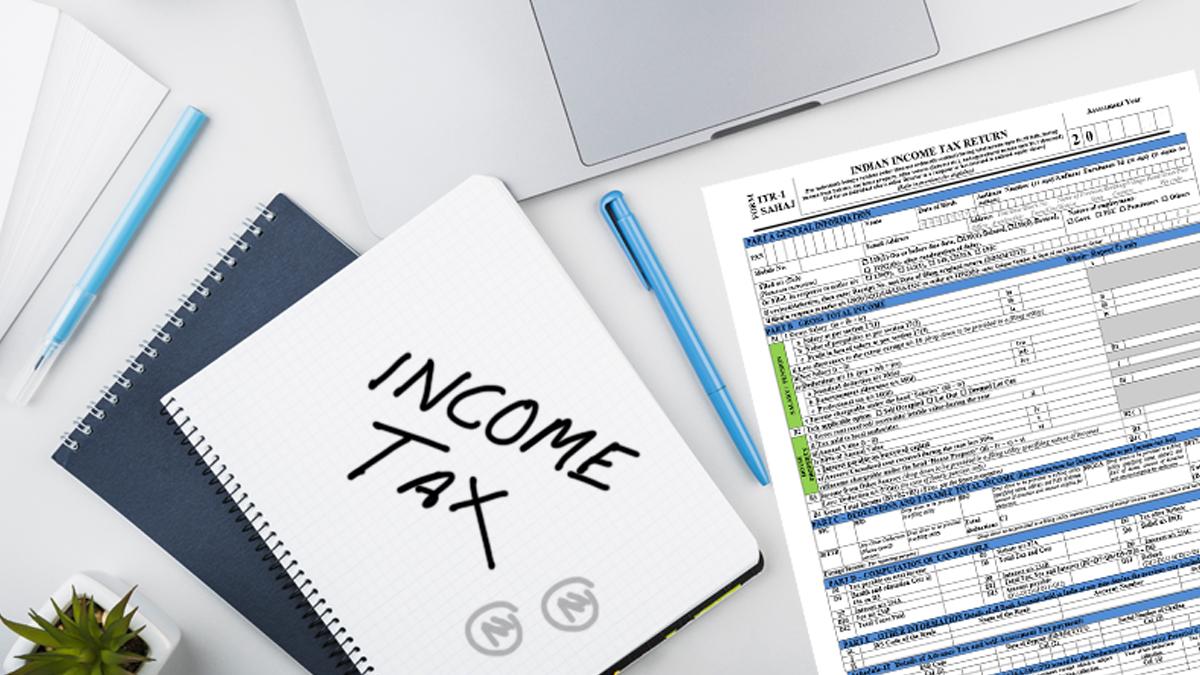Introduction: Understanding the Basics of ITR-1 (Sahaj)
Welcome to WorkToRule Consultants LLP, where we make tax matters easy and simple for our clients. Today, we’re diving into the intricacies of ITR-1 (Sahaj) submitting, shedding mild on what it includes, who it’s for, and whilst it’s due. Let’s resolve the complexities and empower you with the know-how you need to navigate the sector of earnings tax returns expectantly.
What is ITR?
ITR, or Income Tax Return, is a report that taxpayers use to record their income to the authorities’s tax authorities. It’s an essential device for maintaining transparency in economic topics and ensuring compliance with tax laws. Filing your ITR appropriately and right away is essential to avoid penalties and criminal headaches.
What is ITR 1 Sahaj Form?
ITR-1 Sahaj Form is a simplified earnings tax return form designed for individuals with sincere income sources. It’s aptly named “Sahaj,” this means that easy or easy in Hindi, indicating its person-pleasant nature. This shape is ideal for salaried individuals, pensioners, and those earning profits from Interest, making the filing method problem-loose and green.
Also Read; How to file Income Tax Return online for Salaried Employees
Who Can File ITR-1 (Sahaj)?
ITR-1 (Sahaj) is adapted for people assembly specific criteria. Here’s a breakdown of who can document this form:
• Salaried Individuals: If you earn earnings from revenue, consisting of bonuses, commissions, or allowances, you are eligible to document ITR 1 (Sahaj).
• Pensioners: Retired people receiving pension profits can choose ITR-1 to file their tax returns readily.
• Income from Interest: Individuals incomes income from Interest on savings debts, constant deposits, or other Interest-bearing instruments can utilize ITR-1 for submitting their returns.
Who Cannot File ITR-1 (Sahaj)?
While ITR-1 (Sahaj) caters to a wide spectrum of taxpayers, certain people are ineligible to apply this shape. Here are a few instances in which ITR-1 (Sahaj) can not be used:
• Business Income: If you have got profits from commercial enterprise or profession, you’re no longer eligible to record ITR-1 (Sahaj). Instead, you will need to explore different kinds suitable for reporting commercial enterprise earnings.
• Capital Gains: Taxpayers with capital gains from the sale of belongings which include shares or real estate can not record ITR-1 (Sahaj). They must opt for paperwork tailored for reporting capital profits.
• Foreign Income: Individuals with income from foreign resources or belongings positioned outside India are not eligible for ITR-1 (Sahaj). They want to apply appropriate forms for reporting overseas earnings.
ITR-1 Due Date
Timing is crucial in relation to submitting your profits tax returns, and understanding the due date for ITR-1 (Sahaj) is paramount. While the due date can also range relying on person situations, the overall deadline for most taxpayers falls on July thirty first of the evaluation yr. It’s critical to mark your calendar and make sure well timed compliance to keep away from penalties and Interest.
At WorkToRule Consultants LLP, we believe in simplifying tax topics and empowering our customers with know-how. Stay tuned for extra insights and expert recommendation on navigating the problematic international of taxes.
Looking for personalised tax consulting offerings? Reach out to us at WorkToRule Consultants LLP (+91-9034575125) for expert help.
If you found this Q&A helpful, don’t forget to share it with others!
1. What is ITR-1 (Sahaj) Form?
Answer: ITR-1 (Sahaj) is a simplified income tax return form designed for individuals with straightforward income sources. It’s ideal for salaried individuals, pensioners, and those earning income from interest.
2. Who Can File ITR-1 (Sahaj)?
Answer: Individuals earning income from salary, pension, or interest, and those with income from one house property can file ITR-1 (Sahaj). However, total income should not exceed Rs. 75 lakhs.
3. Can Business Owners Use ITR-1 (Sahaj)?
Answer: No, individuals with income from business or profession cannot use ITR-1 (Sahaj). They need to explore other forms suitable for reporting business income, such as ITR-3 or ITR-4.
4. What Documents are Required for Filing ITR-1 (Sahaj)?
Answer: Documents such as Form 16 (for salary income), interest certificates from banks, details of income from other sources, and Aadhaar card/PAN card are required for filing ITR-1 (Sahaj).
5. Is it Mandatory to File ITR-1 (Sahaj) Online?
Answer: While online filing is recommended for convenience and efficiency, individuals can also file ITR-1 (Sahaj) offline by submitting a physical copy to the Income Tax Department.
6. Can ITR-1 (Sahaj) be Revised After Filing?
Answer: Yes, taxpayers can revise their ITR-1 (Sahaj) within a specified period if they discover any errors or omissions in the originally filed return.
7. What Happens if I Miss the Due Date for Filing ITR-1 (Sahaj)?
Answer: Missing the due date for filing ITR-1 (Sahaj) can attract penalties and interest under the Income Tax Act. It’s essential to file your tax return within the due date to avoid such consequences.
8. How Can I E-Verify my Filed ITR-1 (Sahaj)?
Answer: Taxpayers can e-verify their filed ITR-1 (Sahaj) through various methods, including net banking, Aadhaar OTP, bank account OTP, or by sending a physical verification document to the Income Tax Department.
9. Are There Any Consequences for Providing Incorrect Information in ITR-1 (Sahaj)?
Answer: Providing incorrect information in ITR-1 (Sahaj) can lead to scrutiny by the Income Tax Department and may result in penalties or prosecution under the relevant provisions of the Income Tax Act.
10. Can Foreign Residents File ITR-1 (Sahaj)?
Answer: No, individuals with income from foreign sources or assets located outside India cannot use ITR-1 (Sahaj). They need to use appropriate forms for reporting foreign income, such as ITR-2 or ITR-3.
Understanding the ins and outs of ITR-1 (Sahaj) filing is essential for smooth tax compliance. For personalized assistance and expert guidance, feel free to reach out to us at WorkToRule Consultants LLP.


